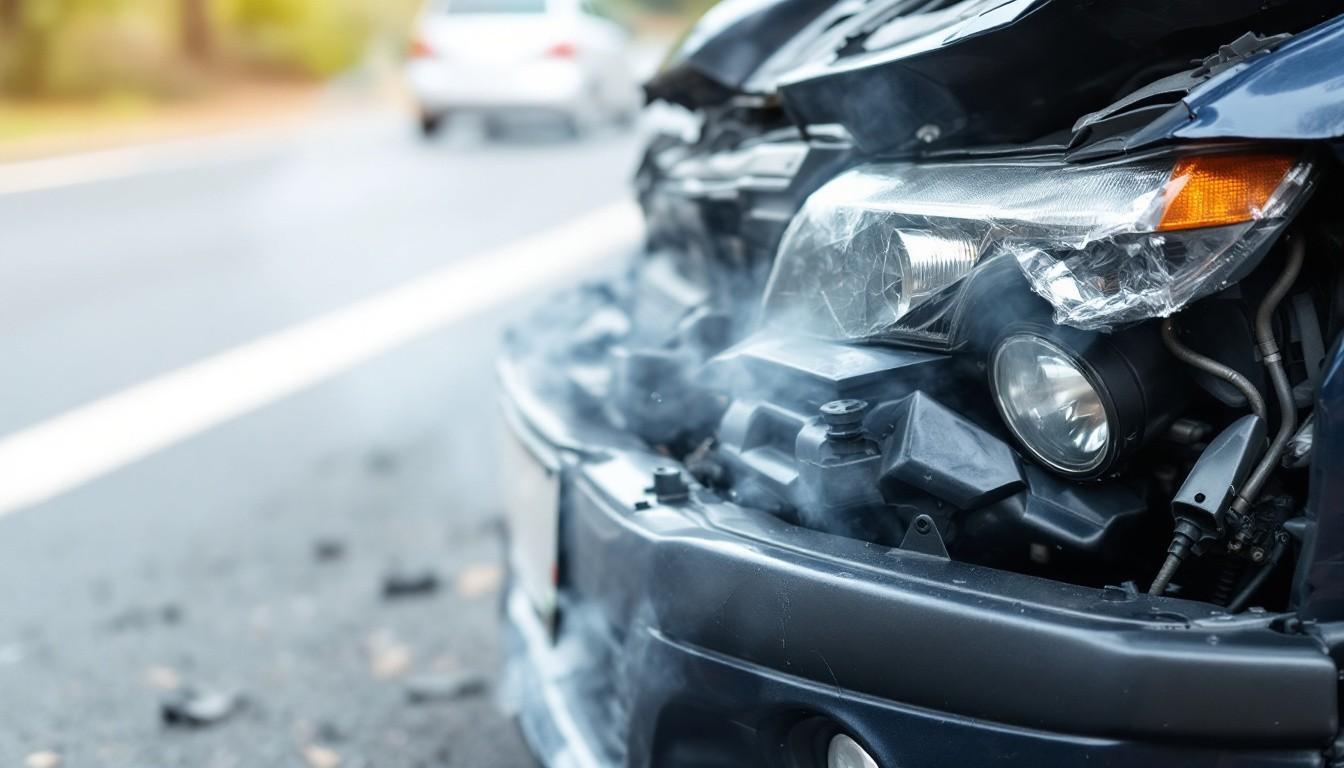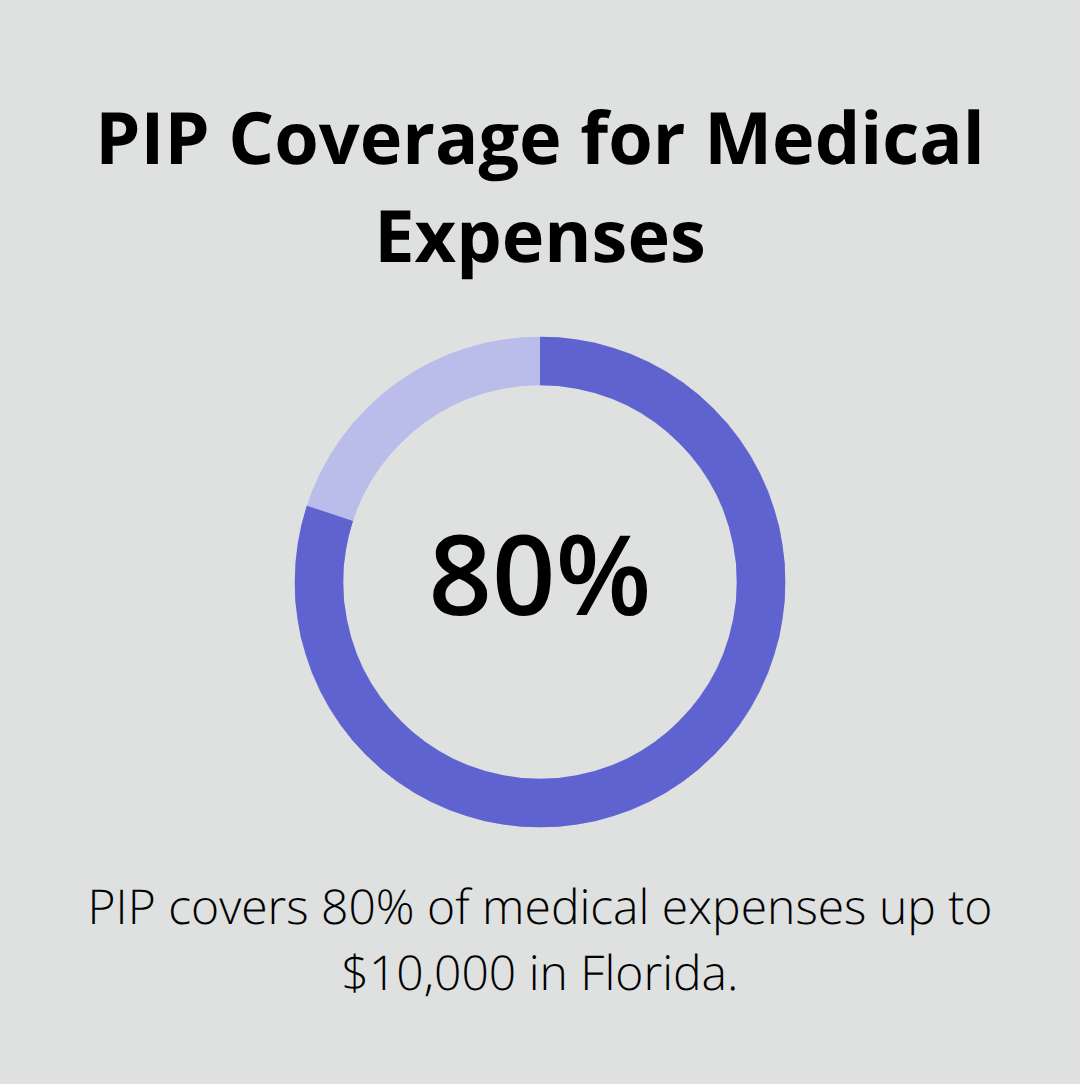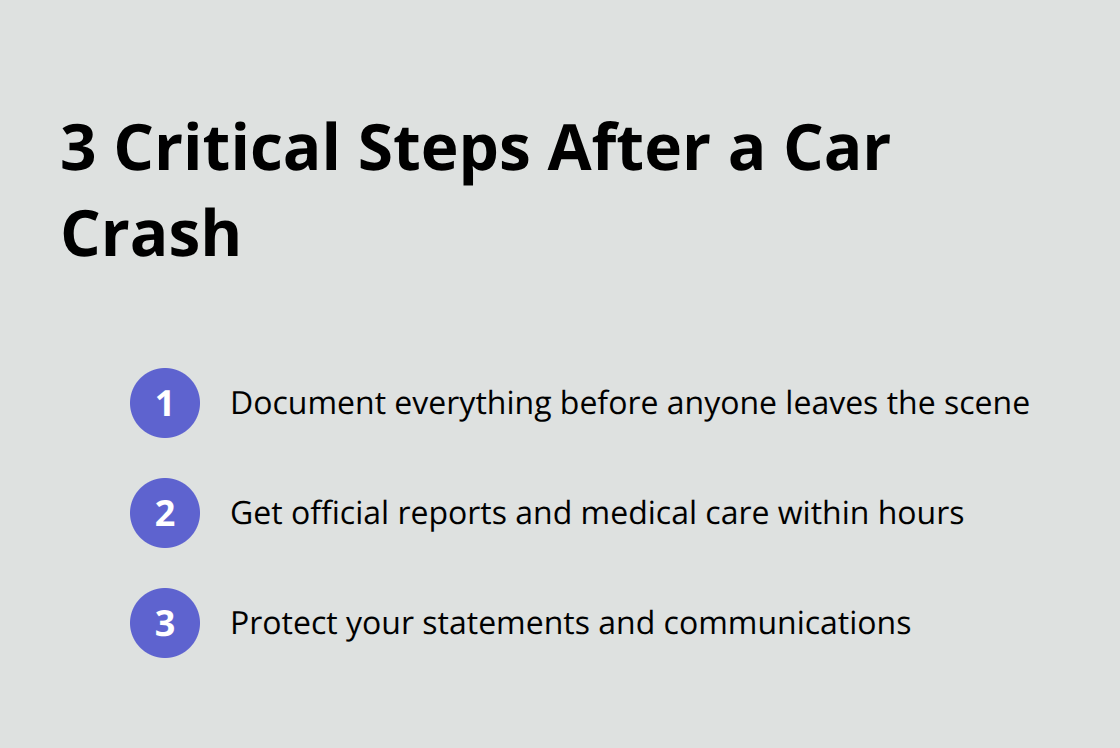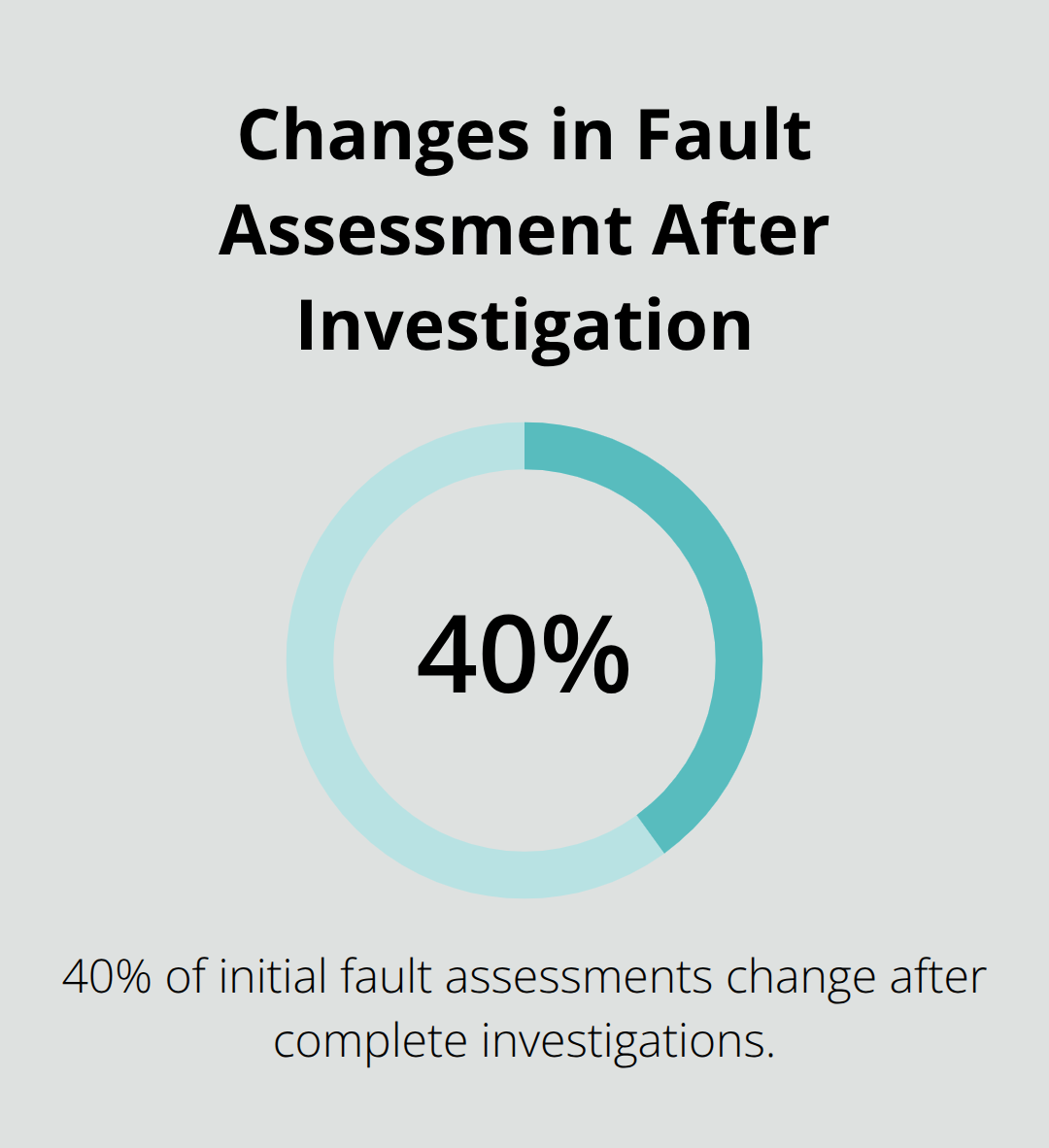Car Crash Legal Advice: What Are Your Rights?
Our Blog
Car Crash Legal Advice: What Are Your Rights?

Car accidents happen without warning and leave victims confused about their legal options. Most people don’t know what steps to take or what rights they have after a crash.
We at Harnage Law PLLC see how proper car crash legal advice can make the difference between fair compensation and financial hardship. Understanding your rights from the start protects your future.
What Rights Do You Have After a Car Crash
Florida law grants car accident victims three fundamental rights that many people don’t fully understand. Your right to medical care means you can seek treatment immediately without upfront costs, thanks to Florida’s Personal Injury Protection coverage that pays 80% of medical expenses up to $10,000. This no-fault system protects you regardless of who caused the accident. You also have the absolute right to legal representation at any stage of your case, and insurance companies cannot prevent you from hiring an attorney. Most importantly, you have the right to fair compensation for all damages, including medical bills, lost wages at 60% of your income within PIP limits, and pain and suffering if your injuries meet Florida’s serious injury threshold.
Medical Treatment Without Financial Barriers
Florida’s PIP insurance creates an immediate safety net for accident victims. The system covers medical expenses from day one, which allows you to focus on recovery instead of fighting for treatment approval. However, PIP has strict time limits – you must seek medical attention within 14 days of the accident to qualify for benefits. The coverage includes emergency room visits, diagnostic tests, surgery, and rehabilitation services. Smart victims document every medical appointment and keep detailed records of their treatment progress, as this documentation becomes vital evidence if your case progresses beyond PIP limits.

Legal Protection Against Insurance Tactics
Insurance companies use aggressive tactics to minimize payouts, but your right to legal representation levels the playing field. Adjusters often contact victims within hours of an accident and hope to secure quick settlements before injuries become apparent. Florida law allows you to refuse these early offers and seek legal counsel without penalty. Attorneys can immediately protect you from recorded statements designed to damage your case and handle all communication with insurance companies. This protection becomes even more valuable when you deal with uninsured motorists or when your injuries exceed the $10,000 PIP threshold (potentially opening the door to additional compensation through bodily injury claims).
Compensation Rights Beyond Basic Coverage
Your right to fair compensation extends far beyond what PIP covers. When injuries meet Florida’s serious injury threshold, victims can pursue additional damages through the at-fault driver’s insurance. This threshold includes permanent injury, significant scarring, or substantial loss of bodily function. The 2023 legislative changes reduced the statute of limitations to two years, which makes prompt action more important than ever. Economic damages cover quantifiable losses like medical bills and lost income, while non-economic damages address pain and suffering. Understanding these compensation categories helps you recognize when initial insurance offers fall short of your actual losses and prepares you for the next steps in protecting your financial recovery.
What Should You Do Right After a Car Crash
The moments after a car crash determine the strength of your legal case and your ability to recover fair compensation. Your actions in the first hour shape everything that follows, from insurance negotiations to potential lawsuits. We at Harnage Law PLLC have seen cases won and lost based on what victims did or failed to do in those first critical minutes. Smart victims follow a systematic approach that protects their rights and builds a strong foundation for their claim.

Document Everything Before Anyone Leaves
Start to take photographs immediately, even before you check on injuries if they appear minor. Capture wide shots that show the entire accident scene, then move closer for detailed images of vehicle damage, license plates, and road conditions. The National Highway Traffic Safety Administration data shows that accident scene evidence disappears quickly once vehicles move and traffic resumes. Take pictures of skid marks, traffic signals, weather conditions, and any debris on the road. Get photos of all drivers’ licenses, insurance cards, and registration documents. Record the exact time, location, and weather conditions in your phone’s notes app. Interview witnesses while their memories remain fresh and ask for their contact information. Many witnesses leave before police arrive, so you must act fast to prevent the loss of valuable testimony that could support your version of events later.
Get Official Reports and Medical Care Within Hours
Call 911 immediately, even for seemingly minor accidents, because police reports provide official documentation that insurance companies rely on heavily. Florida law requires you to report accidents that cause injury, death, or property damage that exceeds $500. The officer who responds will create an official report that includes their assessment of fault, which carries significant weight in insurance negotiations. Request the report number and officer’s badge number for your records. Seek medical attention within 14 days to preserve your PIP benefits, but smart victims go to the emergency room or urgent care within hours of the accident. Some injuries like concussions, soft tissue damage, and internal bleeding don’t show symptoms immediately. Medical records that doctors create shortly after the accident establish a clear connection between the crash and your injuries (this prevents insurance companies from claiming your injuries resulted from other causes).
Protect Your Statements and Communications
Insurance adjusters often contact victims within hours of an accident and hope to secure quick settlements before injuries become apparent. You have the right to refuse recorded statements and decline early settlement offers without penalty. Limit your initial report to basic facts about the accident location, time, and vehicles involved. Avoid statements about fault, injury severity, or how you feel physically. Insurance companies use these early statements to minimize payouts later when your full injury extent becomes clear. Document all communication attempts from insurance companies, including the adjuster’s name, company, and what they requested. This documentation becomes valuable evidence if disputes arise about what was said or promised during early conversations.
These immediate steps create the foundation for everything that comes next, but even perfect documentation won’t protect you from the common mistakes that can destroy an otherwise strong case.
What Mistakes Will Destroy Your Case
Car accident victims make three devastating mistakes that turn winnable cases into financial disasters. These errors happen in the first hours after a crash when emotions run high and clear thinking becomes difficult. Florida insurance companies profit from these mistakes, which explains why adjusters contact victims so quickly after accidents.
Never Admit Fault Even When You Think You Caused It
Accident scenes create confusion, and your initial impression about fault often proves wrong once investigators examine all evidence. Police reports from the Florida Department of Highway Safety show that 40% of initial fault assessments change after complete investigations. When you admit fault at the scene, you create recorded evidence that insurance companies use against you for years. Even phrases like “I’m sorry” or “I didn’t see you” become ammunition for opposing insurance adjusters.

Florida’s comparative negligence laws mean that even if you share some responsibility, you can still recover damages proportional to the other party’s fault. Smart victims stick to basic facts about what they observed and leave fault determination to trained investigators who have access to traffic cameras, witness statements, and accident reconstruction tools.
Medical Delays Kill PIP Benefits and Injury Claims
Florida’s 14-day medical treatment rule creates a hard deadline that destroys thousands of legitimate claims every year. Victims who wait longer than two weeks lose their entire $10,000 PIP coverage, regardless of injury severity. The Florida Department of Financial Services reports that delayed medical treatment accounts for 35% of denied PIP claims statewide.
Adrenaline masks pain for hours or days after accidents, which makes many victims believe they escaped injury when serious damage occurred. Concussions, herniated discs, and soft tissue injuries often show no symptoms for 24 to 72 hours after impact. Emergency room visits within hours of the accident create medical records that establish causation between the crash and your injuries (this documentation becomes vital evidence when insurance companies claim your injuries resulted from pre-existing conditions or unrelated activities rather than the accident itself).
Quick Settlement Offers Trap Victims Before Injuries Surface
Insurance companies offer quick settlements because they know injury costs typically exceed initial estimates by 300% according to Insurance Research Council data. These early offers arrive before you understand your full injury extent, treatment needs, or recovery timeline. When you accept a settlement, you close your case permanently and prevent future claims even when complications develop months later.
Florida law gives you two years to file injury claims, but insurance companies pressure victims to settle within days through artificial deadlines and scare tactics about delayed compensation. Medical treatment often continues for months after accidents, especially for back injuries, neck trauma, and psychological effects like anxiety or depression (smart victims refuse early offers and wait until they reach maximum medical improvement before they consider any settlement discussions).
Final Thoughts
Car crash legal advice becomes most valuable when you act quickly after an accident. Florida’s strict deadlines and complex insurance laws leave no room for hesitation. The 14-day medical treatment window and two-year statute of limitations create hard deadlines that destroy cases when victims wait too long.
Professional legal guidance changes everything in car accident cases. Insurance companies deploy trained adjusters within hours of accidents, but most victims face these professionals without any legal knowledge. The playing field becomes level when you have experienced attorneys who handle negotiations and protect your rights.
Your path forward starts with understanding that every car accident case is unique. Florida’s no-fault system, PIP coverage limits, and serious injury thresholds create complex legal situations that require professional navigation (we at Harnage Law PLLC have seen how proper legal representation transforms cases from insurance company victories into fair settlements for injured victims). The difference between financial recovery and financial hardship often comes down to the decisions you make in the first 48 hours after an accident.
